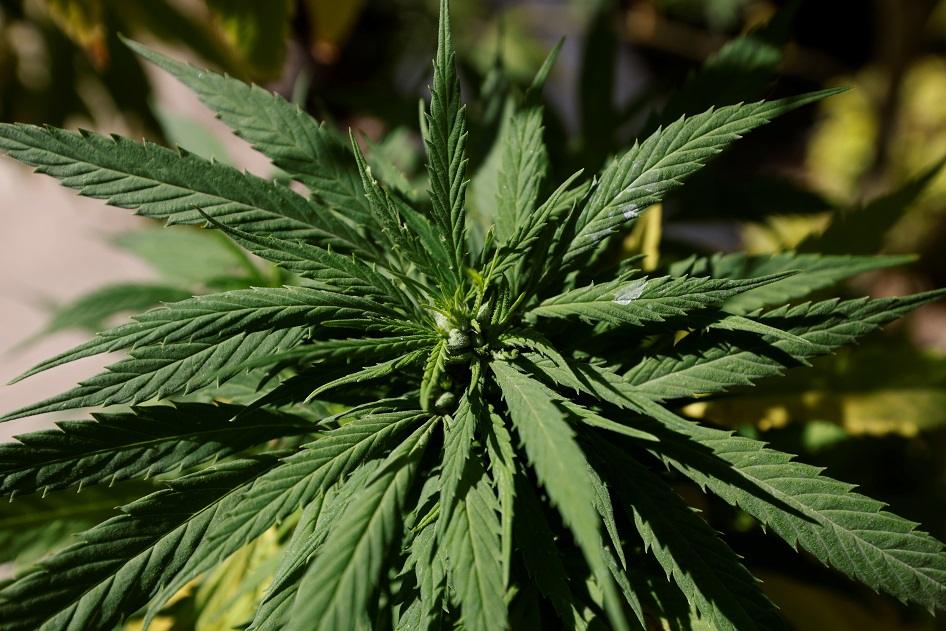Beckham-backed cannabis skincare firm to sell shares on London Stock Exchange
- Published

A company backed by David Beckham, which uses compounds found in cannabis to make skincare and athletic products, plans to sell shares on the London Stock Exchange (LSE).
Cellular Goods has sold a stake to DB Ventures, the former footballer's investment firm, Sky News reported, external.
The company makes its products in labs, rather than from plants.
It is part of a growing market for products which use chemicals found in cannabis for skin regimes.
The BBC has approached Mr Beckham and DB Ventures for comment.
Two of the main active chemicals found in cannabis plans are cannabidiol (CBD) - often used in skincare products - and tetrahydrocannabinol (THC).
While THC is a controlled substance, cannabidiol is not.
Cellular Goods aims to sell products from September 2021, according to its website, which will make it the first firm of its kind to debut on the LSE.
Cannabis companies can list on the LSE so long as they are medicinal, the Financial Conduct Authority (FCA) watchdog decided last year.
While many recreational drug companies have sprung up in the US, where states in including California have legalised it, those companies can't raise money in London, as it is illegal in the UK.
"The last few years have seen massive growth and awareness of the importance of wellness and self-care and we believe cannabinoids will prove to be the king of wellness ingredients," said Cellular Goods chief executive Alexis Abraham.
"The appetite for cannabinoid products is huge and the biosynthetic cannabinoids we will be exclusively using are cleaner, greener, purer, and frankly the future."
Some tests show, external that stronger forms of CBD can help reduce the number of epileptic seizures in some patients, by more than 40%.
But the CBD products you will find on sale right now in the UK all contain CBD at much lower doses.
UK companies must be careful about what they say about the ability of CBD oils. Not much is known for sure about how effective they are.
- Published4 December 2020

- Published1 August 2019
